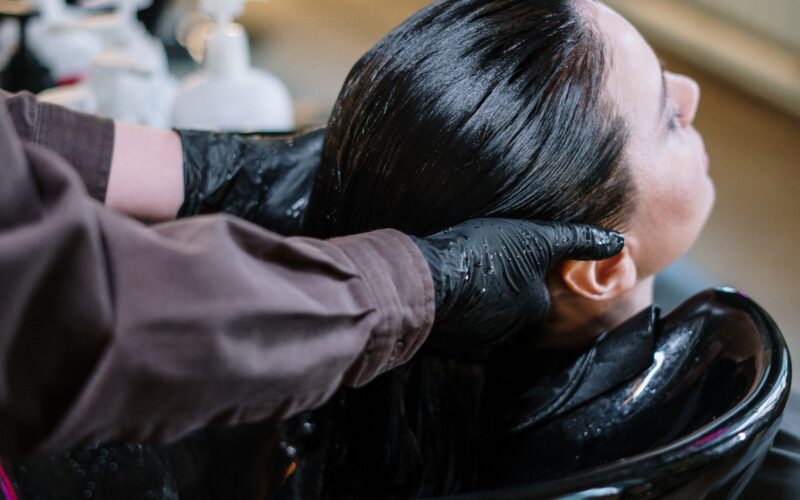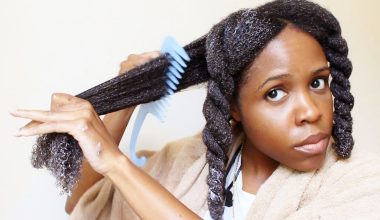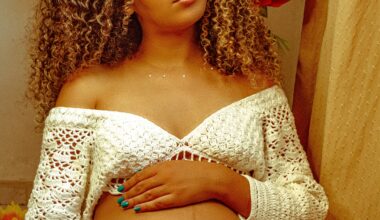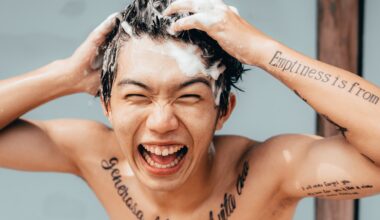Introduction
Hair Conditioner vs. Shampoo: Exploring the Relationship and Benefits for Hair Care
Your hair care routine is a vital aspect of your daily life. At the heart of this routine are two essential products: hair conditioner and shampoo. In this comprehensive guide, we will delve into the intriguing interplay between these two staples, understanding their roles, benefits, and when one might take precedence over the other.
Key Takeaways
- Hair conditioner and shampoo are foundational elements of hair care.
- This guide aims to demystify their roles and provide clarity on their relationship.
Hair Conditioner in Shampoo: The All-in-One Approach
In recent years, the world of hair care has seen the emergence of a unique hybrid: hair conditioner-infused shampoos. These products aim to provide the benefits of both conditioner and shampoo in a single bottle.
Hair Conditioner-Infused Shampoos: A Convenient Blend
Hair conditioner-infused shampoos are designed to streamline your hair care routine. They offer several advantages:
- Time-Saving: Combining conditioner and shampoo into one step can save you valuable time during your daily routine.
- Moisture Balance: These products aim to cleanse your hair while maintaining moisture, reducing the need for a separate conditioner.
- Convenience: Hair conditioner-infused shampoos are ideal for travel or when you’re on the go, as they simplify your hair care regimen.
Popular Products to Consider
- Pantene Pro-V Daily Moisture Renewal Shampoo and Conditioner: This popular product offers both cleansing and conditioning benefits, leaving hair soft and manageable.
- Dove Nutritive Solutions 2-in-1 Shampoo and Conditioner: Dove’s 2-in-1 formula is designed to nourish and strengthen hair while cleansing.
- Herbal Essences Bio: Renew Coconut Milk 2-in-1 Shampoo and Conditioner: Infused with coconut milk, this product provides a deep clean and hydration.
While hair conditioner-infused shampoos offer convenience, it’s essential to consider your hair type and specific needs. For some individuals, a traditional shampoo and separate conditioner may still be the preferred choice.
Is Hair Conditioner a Replacement for Shampoo?
With the emergence of hair conditioner-infused shampoos and the desire for more natural hair care routines, a common question arises: Can hair conditioner replace shampoo entirely? In this section, we’ll delve into this question and explore the distinctions in their roles and functions.
Is Hair Conditioner a Suitable Replacement for Shampoo?
While hair conditioner can be a valuable part of your hair care routine, it’s not a complete replacement for shampoo. Here’s why:
- Cleansing vs. Conditioning: Shampoo is specifically designed to cleanse the hair and scalp, removing dirt, oil, and product buildup. Conditioner, on the other hand, is formulated to moisturize and detangle the hair. Using conditioner alone may not effectively cleanse your hair and scalp.
- Oil and Dirt Removal: Shampoo contains surfactants that create lather and help remove oils and impurities from your hair and scalp. Conditioner lacks these cleansing properties.
- Balancing Act: Shampoo is essential for maintaining a healthy balance of moisture and cleanliness. Skipping shampoo can lead to excess buildup and may leave your hair looking greasy.
The Role of Conditioner
While conditioner can’t replace shampoo, it plays a crucial role in hair care:
- Hydration: Conditioner helps keep your hair hydrated, making it softer, more manageable, and less prone to breakage.
- Detangling: It eases the process of detangling your hair, reducing the risk of damage when combing or brushing.
- Restoration: Conditioner can repair and restore damaged hair, leaving it looking healthier and shinier.
In summary, hair conditioner is not a replacement for shampoo but a complementary product in your hair care routine. It provides essential hydration and conditioning, while shampoo ensures a clean and balanced scalp.
Hair Conditioner vs. Shampoo: What Each Does Best
Hair care routines benefit from a balanced approach, and understanding the strengths of both hair conditioner and shampoo is essential. In this section, we’ll delve into what each product does best and provide guidance on when and why to use them.
Hair Conditioner: The Moisturizing Marvel
What It Does Best:
- Hydration: Conditioner excels at moisturizing and nourishing your hair, preventing dryness and promoting softness.
When to Use It:
- After Shampooing: Apply conditioner after using shampoo to restore moisture and manageability.
- Regularly: Use conditioner regularly, especially if you have dry or damaged hair.
Shampoo: The Cleansing Champion
What It Does Best:
- Cleansing: Shampoo is designed to cleanse your hair and scalp, removing oils, dirt, and product buildup.
When to Use It:
- When Your Hair Is Dirty: Use shampoo when your hair feels oily, dirty, or has product buildup.
- As Needed: Shampooing frequency varies from person to person. Some may need it daily, while others can go longer between washes.
Balancing Act: When to Use Both
Achieving the best results often involves using both hair conditioner and shampoo:
- Cleanse and Condition: Shampoo to cleanse your hair and scalp, then use conditioner to hydrate and detangle.
- Regular Routine: Maintain a regular hair care routine that incorporates both products to keep your hair at its best.
Remember, the specific needs of your hair may vary based on factors like your hair type, lifestyle, and environmental factors. It’s essential to tailor your routine to meet those needs effectively.
Hair Growth: The Role of Conditioners and Shampoos
Maintaining healthy hair often involves considering its growth and overall well-being. In this section, we’ll explore how specialized hair growth conditioners and shampoos can contribute to hair health and discuss key ingredients and products that promote growth.
Specialized Hair Growth Products: A Boost for Your Mane
Hair growth conditioners and shampoos are formulated with specific ingredients to enhance hair health and stimulate growth. Here’s how they can make a difference:
- DHT Blockers: Some specialized products contain DHT blockers to prevent the hormone dihydrotestosterone from shrinking hair follicles and causing hair loss.
- Nutrient-Rich Formulas: Hair growth shampoos and conditioners often contain vitamins, minerals, and antioxidants that nourish the scalp and promote healthy hair growth.
- Strengthening Ingredients: These products may include ingredients like biotin and keratin to strengthen hair strands, reducing breakage and promoting longer, thicker hair.
Ingredients to Look For
When choosing hair growth products, keep an eye out for these beneficial ingredients:
- Biotin: Known as vitamin H, biotin supports hair and nail health and may encourage hair growth.
- Caffeine: Caffeine can stimulate hair follicles and promote hair growth.
- Keratin: This protein strengthens hair and minimizes damage.
- Saw Palmetto: A natural DHT blocker, saw palmetto may help prevent hair loss.
Products for Hair Growth
- Nioxin System: Nioxin offers a range of hair care systems designed to improve scalp health and promote hair growth.
- Viviscal: Viviscal is known for its hair growth supplements, but they also offer a line of hair care products to support growth.
- Revita Hair Growth Shampoo and Conditioner: These products contain ingredients like ketoconazole and caffeine to stimulate hair growth.
While specialized hair growth products can be beneficial, it’s important to use them consistently and as directed for the best results. Additionally, consulting with a healthcare professional for underlying hair loss concerns is advisable.
Hair Conditioner and Shampoo Combos: Pros and Cons
The beauty industry is always evolving, and one innovation that has gained attention is the combination of hair conditioner and shampoo into a single product. In this section, we’ll examine the pros and cons of using these combined hair conditioner and shampoo products and help you determine if they are the right choice for your hair care routine.
The Pros of Combined Products
- Time Efficiency: Using a 2-in-1 product saves time in the shower as you only need one application.
- Convenience: These products are great for travel or situations where you need a quick hair wash.
- Mild Cleansing: Combined products are often formulated to provide mild cleansing and conditioning, suitable for daily use.
The Cons to Consider
- Limited Customization: Combined products may not offer the level of customization you can achieve with separate shampoo and conditioner. Individual hair types and needs may require specific formulations.
- Effectiveness: Depending on your hair type and concerns, a dedicated conditioner or shampoo might provide better results in addressing your specific issues.
Who Benefits Most from Combined Products?
Combined hair conditioner and shampoo products can be beneficial for:
- People on the Go: If you have a busy lifestyle or frequently travel, these products offer convenience.
- Those with Fine Hair: Fine hair types that don’t require heavy conditioning may find 2-in-1 products suitable.
- Daily Washers: If you prefer daily washing, mild combined products can be gentle on your hair.
It’s important to consider your hair type, specific needs, and styling preferences when deciding whether to use combined products or separate conditioner and shampoo.
Hair Care Routines: Finding the Right Balance
Maintaining healthy and beautiful hair requires finding the right balance in your hair care routine. In this section, we’ll provide guidance on creating a balanced routine that incorporates both conditioner and shampoo, taking into account factors such as hair type and individual needs.
Creating a Balanced Hair Care Routine
- Know Your Hair Type: Understanding your hair type is the first step in creating an effective routine. Is your hair straight, curly, wavy, fine, or thick? Knowing this helps you choose the right products.
- Frequency Matters: How often you should wash your hair depends on your hair type and lifestyle. While some may need daily washing, others can go longer between washes.
- Shampooing: Use shampoo to cleanse your hair and scalp when they are dirty or have product buildup. Select a shampoo that suits your hair type and any specific concerns like dandruff or color-treated hair.
- Conditioning: Follow up with conditioner to add moisture and manageability. Apply it mainly to the ends of your hair and avoid the scalp if it tends to get oily.
- Specialized Products: Incorporate specialized products like hair growth shampoos and conditioners if you have specific concerns.
- Rinse Thoroughly: Ensure you rinse both shampoo and conditioner thoroughly to prevent residue buildup.
- Styling and Heat Protection: Use heat protectants when styling with heat tools and consider leave-in conditioners or serums for added protection and shine.
- Regular Trims: Regular trims help maintain healthy ends and prevent split ends.
Individualized Approach
Remember that your hair care routine should be tailored to your individual needs. Factors such as climate, lifestyle, and any specific hair concerns play a role in determining the ideal routine.
By finding the right balance and selecting products that align with your hair type and needs, you can maintain gorgeous, healthy hair.
Conclusion
In the realm of hair care, two steadfast companions—hair conditioner and shampoo—play pivotal roles in maintaining the health and beauty of your tresses. As we conclude this exploration of their relationship and benefits, let’s recap the essential takeaways:
- Balanced Partnership: Hair conditioner and shampoo are not adversaries but partners in your hair care journey. Each has its unique role in promoting optimal hair health.
- Choose Wisely: Tailor your choice of conditioner and shampoo to your hair type, lifestyle, and specific needs. Understanding your hair is the first step toward a healthy, vibrant mane.
- Combined Products: 2-in-1 products can be convenient for certain situations, but they may not provide the customization your hair requires.
- Specialized Care: For targeted concerns like hair growth, explore specialized products that contain ingredients to support your hair’s needs.
- Routine Matters: Develop a personalized hair care routine that considers factors like hair type, washing frequency, and styling habits.
By embracing a balanced approach to hair care, you empower yourself to nurture and protect your locks. With the right products and knowledge, you can unlock the full potential of your hair, leaving it looking and feeling its best.
Additional Resources
If you’re eager to delve deeper into the world of hair care, here are some resources to expand your knowledge:
These resources offer expert insights and additional tips to help you master your hair care routine.
With the insights gained from this guide, you are well-equipped to embark on your hair care journey with confidence, ensuring that your hair radiates health and beauty.





